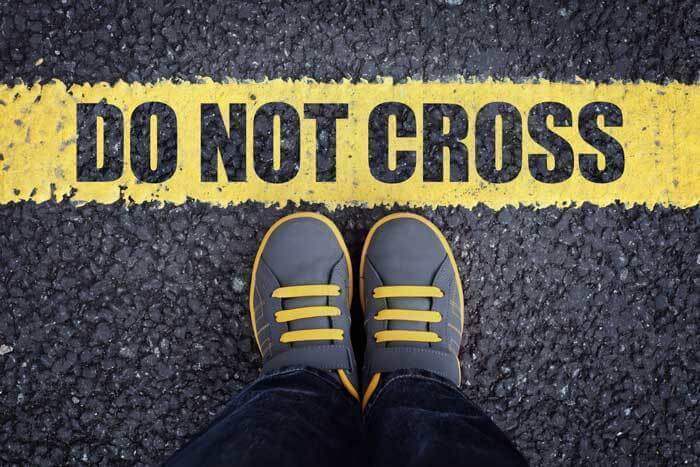Freedom without respect for boundaries is IRRESPONSIBLE. When those boundaries are crossed, consequences follow — laws, justice, and authority step in. This is why freedom with responsibility is absolutely necessary.
Freedom without boundaries isn’t just irresponsible; it’s self-centered. It reflects a mindset that says, “I’ll do whatever I want, just because I can.”

Freedom and Valuing Others
Valuing others is closely tied to love—at least, the way we define love. And our definition is simple:
Pursuing the best for others—patiently, kindly, sacrificially, and unconditionally.
When you truly value someone, you set healthy boundaries. You establish consequences for when those boundaries are crossed—but you also allow the freedom for them to be crossed. That means others are free to make their own choices, and just as free to face the results of those choices.
Here are a few examples:
- Can your child choose not to clean their room? Yes. They have the freedom to obey or disobey. But if a clean room is a house rule, then that's a boundary—with consequences attached.
- Can your friend choose to curse at you? Yes. You may not like it, and it may hurt—but that’s their choice. And you have the freedom to decide whether or not to continue that friendship.
- Can someone choose to rob you? Yes. That’s their decision—to do good or evil. And you have every right to protect yourself, your property, and to seek justice.
- Can an employee ignore their supervisor? Yes. It’s their choice, and their boss may choose to respond with appropriate consequences.
Does that mean we’re excusing bad behavior?
Not at all. Some people misunderstand these ideas and assume they’re permissive. But recognizing someone’s freedom doesn’t mean endorsing poor choices. It’s just acknowledging reality . And when we ignore reality, we often replace it with opinion, bias, or selfishness.
One helpful way to visualize and reinforce this concept of freedom and boundaries is through the Freedom V.
Freedom and Government
It seems likely that, regardless of the form of government—even in a democracy—those in power often develop a fear of the people’s freedom. That fear tends to influence how deeply they involve themselves in citizens’ lives.
The more a government emphasizes self-governance over simply defending individual rights, the less invasive it tends to be. This is especially true when self-governance is grounded in values like those found in foundational texts such as the Bible and the U.S. Constitution.
Government absolutely has a legitimate role: to protect its people. But this role can become distorted when leaders focus on the endless list of potential threats—to either the government or the people.
When fear takes the wheel, those in power begin creating laws they believe define what is “best” for the public. More often than not, these laws are born from a belief that people aren’t wise or moral enough to make good choices on their own.
As fear-based legislation increases, so do regulations. These reduce personal freedom and establish boundaries that may be unnecessary or inappropriate. If the people see a tangible benefit from the control, they might tolerate it. But when the benefit isn’t clear—or doesn’t exist—resistance eventually grows.
Irresponsible Freedom
On the flip side, those who misuse their freedom often demand even more freedom for themselves—freedom that disregards others and infringes on their rights. This kind of self-centered freedom aims to remove all boundaries from itself while placing limits on anyone who might challenge or restrict it.
When this mindset takes hold among those in authority, freedom becomes one-sided—reserved only for those who share the same ideology. It’s no longer about liberty for all, but liberty for some, at the expense of others.
Even when someone isn’t loudly demanding “irresponsible freedom,” the consequences of breaking the law impact everyone. People who abuse their freedom—criminals, terrorists, and others—represent a small fraction of the population. Yet, their actions ripple out, affecting the freedoms of the majority.
Think about it: a tiny minority of terrorists has led to massive security measures at airports, subjecting everyday passengers to long lines, screenings, and searches. The irresponsible freedom of a few results in less freedom for everyone else.
Freedom and Individual Rights
Government overreach also becomes a problem when leaders place individual rights above self-governance. To be clear—I support individual rights. But without self-governance, individual rights can spiral into irresponsible freedom.
The more we elevate individual rights without the balancing force of personal responsibility, the more control is needed to protect people from each other’s unchecked freedoms.
Freedom with responsibility honors limits.Irresponsible freedom does not. It refuses to consider others, driven by a self-centered mindset that says, “It’s all about me.”
